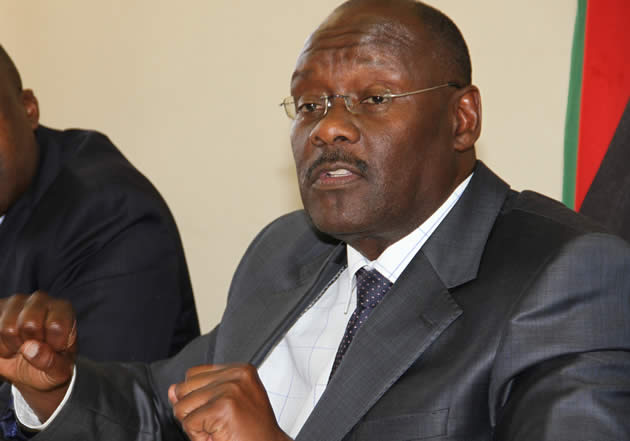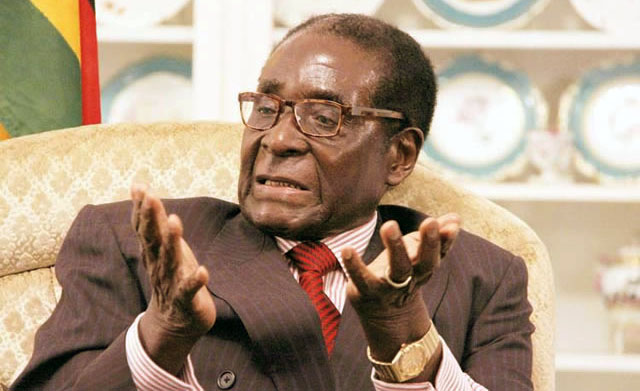Perm sec fingered in scandal

Herald Reporters
Secretary for Health and Child Care Dr Gerald Gwinji and 493 other high-ranking officials in the ministry and related administrative institutions countrywide allegedly looted a huge chunk of the $1,5 million released by Treasury for health workers’ allowances.It could not be immediately established how much Dr Gwinji was receiving for on-call allowances, but his other senior officials were drawing up to $403 per month.
However, all these 494 people do not work at night and are not entitled to the money.
This did not go down well with nurses whose night duty allowances remain a paltry $3 per month, yet they are the ones who do the work at night, resulting in them boycotting night duty on Monday last week.
Also Read:
Health and Child Care Minister Dr David Parirenyatwa confirmed that senior officials in his ministry were getting the undeserved on-call and night duty allowances.
“How those people got these allowances, we do not know. Kuti vakazviisa ipapo sei we do not know, so we are investigating them fully.
“Takataura kuti we are investigating them. Those who were getting it (on-call allowances) are not getting it anymore and we are investigating them thoroughly.”
The Health Services Board is the employer of all health workers in the country.
These anomalies were revealed when officials from the Zimbabwe Nurses Association approached the Chief’s Council led by Chief Fortune Charumbira on Tuesday to air their grievances.
ZNA Harare provincial chairperson, Mr Enock Dongo, led the team that met Chief Charumbira and other chiefs where they raised a number of malpractices bedevilling management.
“The officials told us that the money was supposed to go towards night allowances, health risk allowance and on-call allowances,” said Chief Charumbira.
“But the contention now is about distribution of the money. ZINA allege that the greatest proportion of the $1, 5 million that came from Treasury was going to on-call allowance which is exclusively meant for senior management with each of them getting at least $400 a month while nurses get $3.
“They alleged that the permanent secretary and senior management in the ministry were getting the lion’ share of the allowances yet they are never on-call duty,” said Chief Charumbira.
On-call duty is emergence calls for health personnel to report for duty when there is an emergence at night.
Documents seen by The Herald indicate that three principal directors and directors of Epidemiology and Disease Control, Government Analyst Laboratory, Laboratory Services, National Institute of Health Research and Oral Health pocketed at least $403 every month.
It could not be established if those who benefited were substantive principal directors or those who were acting.
“As Chiefs, we told the nurses that the plight of patients should come first because they are not the reason those senior officials are getting all that money, so why punish the innocent?
“So we said they should call off the strike and engage more with players who can help break the impasse. We will be engaging the Minister of Health and Child Care (Dr David Parirenyatwa) to rectify the obvious anomalies because this is purely a management issue at the ministry and not fiscal.
“Everything that Mr Dongo said was confirmed by Zimbabwe Nurses Association president Regina Smith when we contacted her. This shows that there is a serious problem,” said Chief Charumbira.
Some of the officials who dubiously got on-call allowances were computer technicians, nurse tutor, pharmacy technician, system administrator and hospitals equipment technicians.
Ironically, the majority of the officials were also implicated in the scandal that rocked the Health Transition Fund sometime last year.
According to ZINA, sometime last month, a taskforce comprising the ZINA executive, Health Services Board officials and Ministry of Health officials recommended how the money was supposed to be distributed among all health cadres.
If HSB had implemented the recommendations seen by The Herald, about $43 729 per month was going to be saved from the $1,5 million allocated.
“The saving was proposed by the team to pay night duty allowance, which should be increased to a maximum of $70 for the 2 500 members deserving the allowance,” reads part of the taskforce report.










Comments